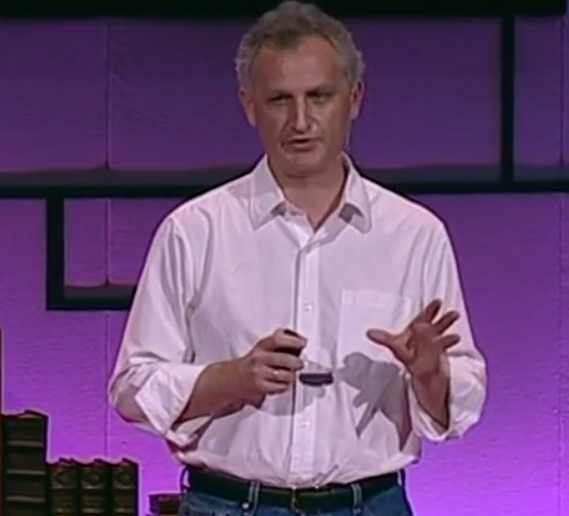Ralph Waldo Emerson described language as "fossil poetry."
詩人艾默生曾將語言描述為“化石般的詩”。
But before it was fossil poetry, language was fossil metaphor.
但是在它成為化石般的詩之前,語言是化石般的暗喻。
And these fossils still breathe.
而這些化石現在仍具有生氣。
Take the three most famous words in all of Western philosophy: "Cogito ergo sum."
就拿在西方哲學中最有名的三個詞來說:Cogito ergo sum
That's routinely translated as, "I think, therefore I am." But there is a better translation.
通常被翻譯為“我思故我在。”但是有一種更好的譯法。
The Latin word "cogito" is derived from the prefix "co," meaning "together," and the verb "agitare," meaning "to shake."
這里拉丁文"cogito"是從前綴"co"而來,意思是"在一起",而動詞"agitare"是“搖動”的意思

So, the original meaning of "cogito" is to shake together.
所以"cogito"的原意是一起搖動。
And the proper translation of "cogito ergo sum" is "I shake things up, therefore I am."
而"cogito ergo sum"的適切的翻譯是"我搖動事物,故我在."
Metaphor shakes things up, giving us everything from Shakespeare to scientific discovery in the process.
暗喻搖動事物,它帶給我們從莎士比亞到科學發現的各樣事情。
The mind is a plastic snow dome, the most beautiful, most interesting,
我們的思想是一個圣誕節的雪花球,它最美麗、最有趣,
and most itself, when, as Elvis put it, it's all shook up.
也最本色的時候,就是它被使勁搖動的時候,像埃爾維斯所說的一樣。
And metaphor keeps the mind shaking, rattling and rolling, long after Elvis has left the building. Thank you very much.
暗喻讓我們的思想不住的搖動,叮當作響,滾動不已,盡管埃爾維斯早已離開。謝謝各位。











